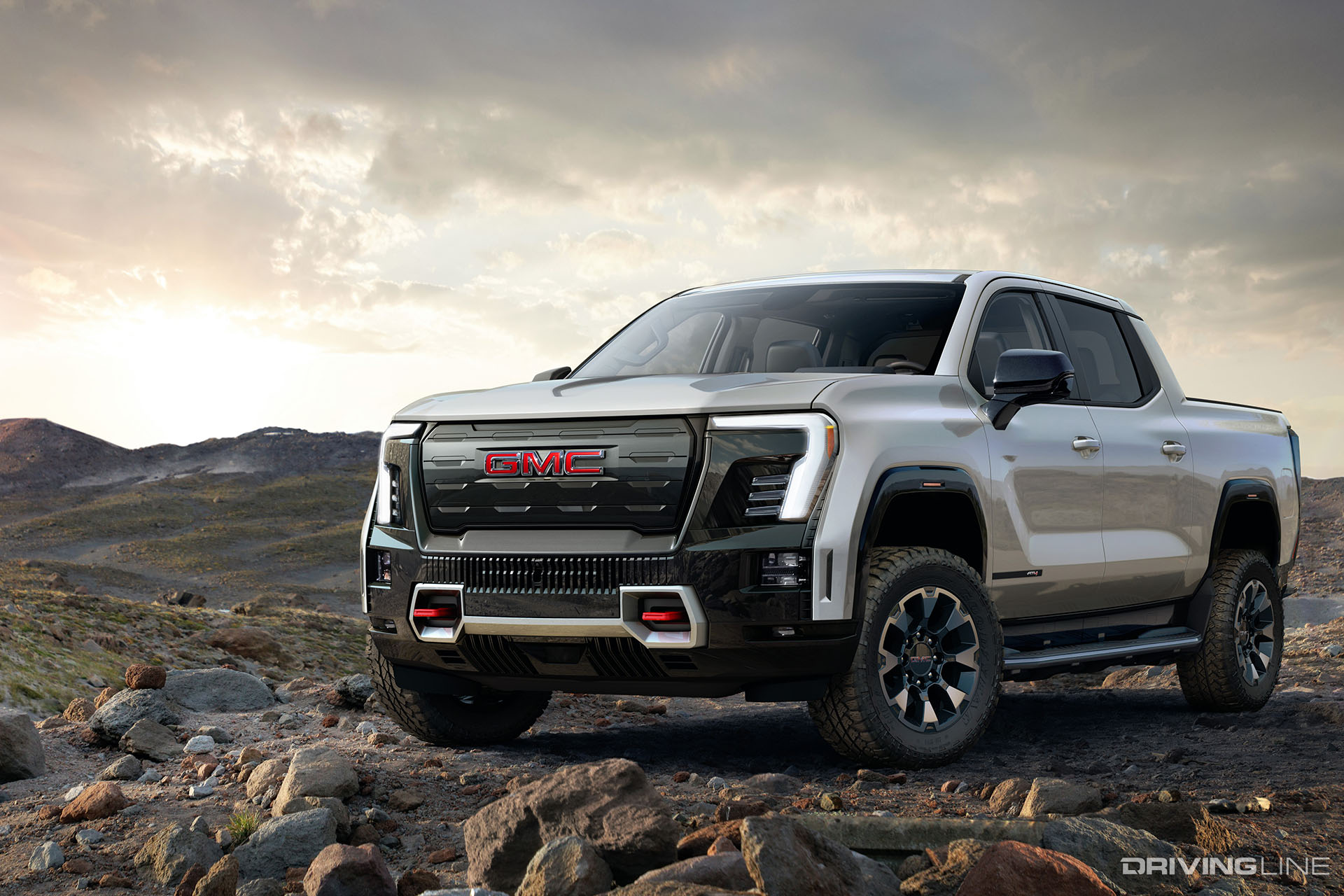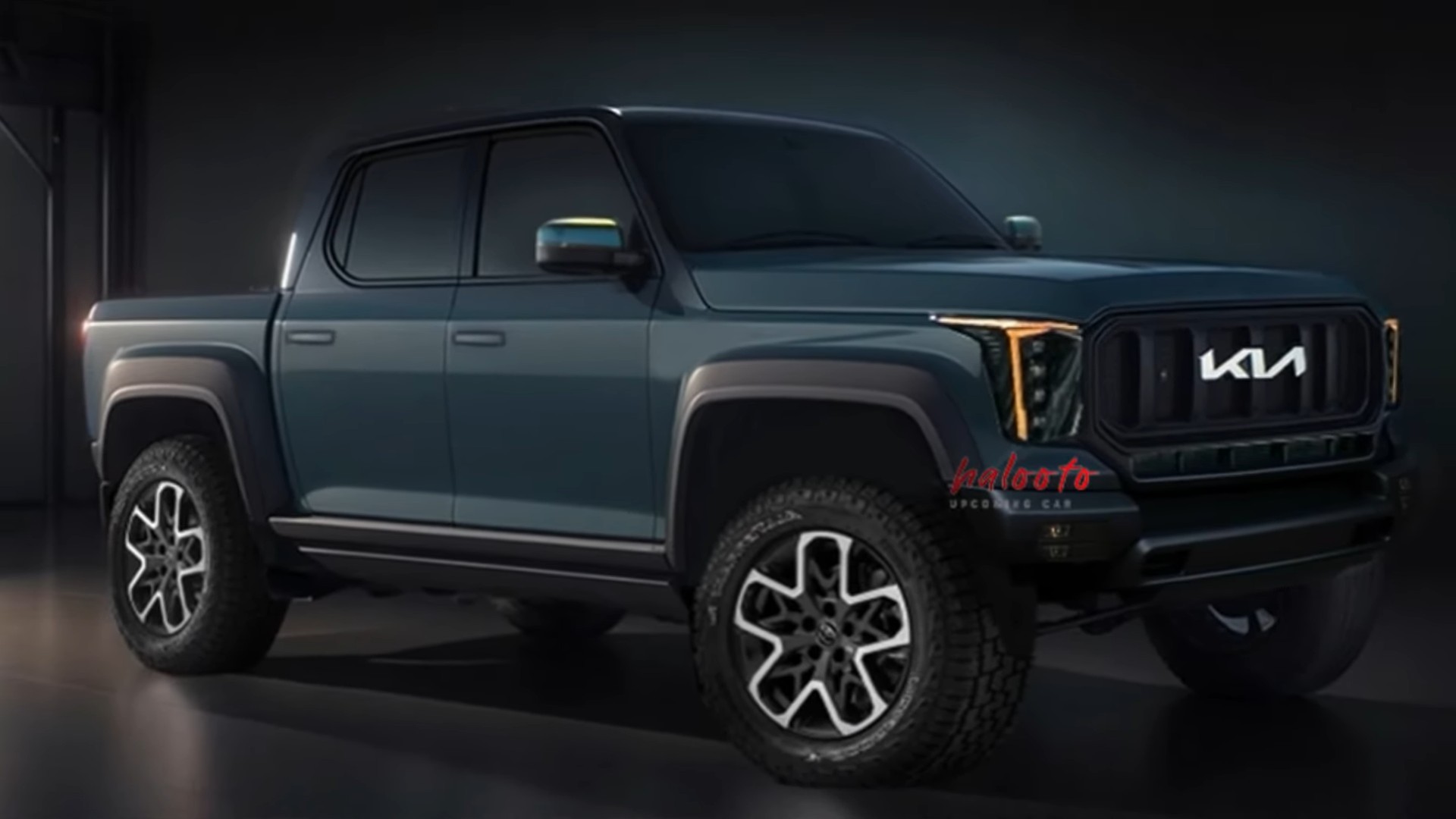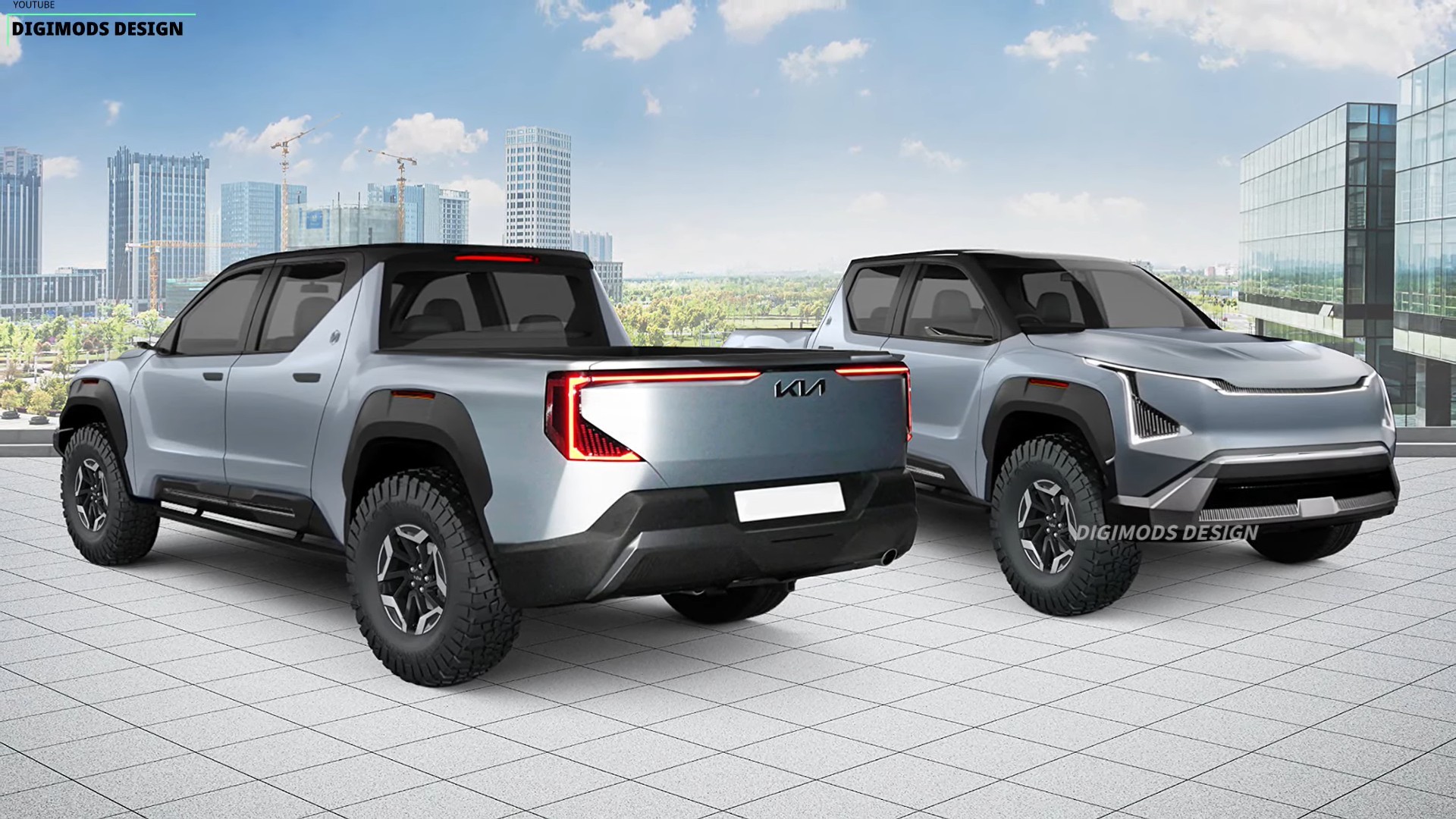Pickup Dump Trucks For Sale: Your Comprehensive Guide to Hauling Efficiency pickup.truckstrend.com
In the world of construction, landscaping, farming, and serious DIY projects, efficiency is paramount. Every minute saved on a job site translates into increased productivity and profitability. This is where the pickup dump truck emerges as an indispensable asset. More agile than a full-sized dump truck yet infinitely more capable than a standard pickup for material handling, these versatile vehicles offer a unique blend of power, convenience, and maneuverability. Whether you’re a small business owner looking to streamline operations, a landscaper needing to deliver mulch and remove debris, or a homeowner tackling large-scale yard work, understanding the market for pickup dump trucks for sale is your first step towards unlocking unparalleled hauling efficiency.
This comprehensive guide will delve into everything you need to know about purchasing a pickup dump truck, from defining what they are and exploring their myriad benefits, to navigating the market, understanding key considerations, and offering practical advice for making a smart investment.
Pickup Dump Trucks For Sale: Your Comprehensive Guide to Hauling Efficiency
Understanding Pickup Dump Trucks: What Are They?
At its core, a pickup dump truck is a conventional pickup truck chassis that has been specifically modified or purpose-built with a hydraulically operated bed capable of lifting and tilting to discharge its contents. Unlike traditional pickups where materials must be manually unloaded, a dump truck feature allows for quick, effortless dumping of bulk materials like gravel, dirt, sand, mulch, firewood, and demolition debris.
These vehicles typically come in two main forms:
- Dump Inserts/Conversion Kits: These are self-contained hydraulic units that can be installed into the bed of an existing heavy-duty pickup truck (e.g., Ford F-250/350, Ram 2500/3500, Chevy Silverado 2500/3500). They utilize the truck’s existing frame and drivetrain, offering a cost-effective way to add dumping capability.
- Purpose-Built Chassis Cab Dump Trucks: These are typically built on heavier-duty pickup chassis cabs (e.g., Ford F-450/550, Ram 4500/5500, Chevy Silverado 4500HD/5500HD) and feature a dedicated dump body and hydraulic system installed directly by an upfitter or the manufacturer. These offer higher payload capacities and are designed from the ground up for commercial use.
Regardless of the type, the fundamental advantage lies in their ability to save time, reduce labor, and enhance safety by eliminating the need for manual shoveling or costly equipment rentals.

Why Invest in a Pickup Dump Truck? Benefits and Applications
The decision to purchase a pickup dump truck is often driven by a clear need for increased efficiency and versatility. Here’s a breakdown of the key benefits and common applications:
- Unmatched Versatility: A pickup dump truck can haul and dump a wide array of materials, making it suitable for diverse tasks. From delivering aggregates to removing construction waste, its utility is broad.
- Enhanced Efficiency and Time Savings: The most significant advantage is the rapid unloading capability. What would take hours of manual labor or multiple trips with a shovel can be accomplished in minutes, drastically reducing job completion times and labor costs.
- Maneuverability in Tight Spaces: Unlike large commercial dump trucks, pickup dump trucks are more compact and easier to navigate in residential areas, narrow driveways, and crowded job sites. This makes them ideal for urban landscaping or smaller construction projects where larger vehicles cannot access.
- Lower Operating Costs: Generally, pickup dump trucks have lower fuel consumption, insurance premiums, and maintenance costs compared to their full-sized commercial counterparts.
- No CDL Often Required: For many pickup dump trucks, especially those based on 1-ton or lighter chassis, a Commercial Driver’s License (CDL) is not required, as long as their Gross Vehicle Weight Rating (GVWR) remains below 26,001 lbs. This broadens the pool of potential drivers and simplifies operations for small businesses.
- Dual Purpose Functionality (for some): Trucks with dump inserts can often be converted back to a standard pickup by removing the insert, offering flexibility for different tasks.


Common Applications:
- Landscaping & Lawn Care: Transporting mulch, topsoil, gravel, plants, and removing yard waste.
- Small-Scale Construction: Hauling sand, concrete debris, rebar, and tools.
- Home Renovation & DIY: Moving demolition waste, hauling materials for home projects.
- Farming & Agriculture: Transporting feed, hay, crops, and farm supplies.
- Property Management: Clearing snow, moving equipment, general maintenance.
- Firewood Delivery: Efficiently delivering and offloading firewood.
Key Considerations When Buying a Pickup Dump Truck
Purchasing a pickup dump truck is a significant investment that requires careful consideration of various factors to ensure you select the right vehicle for your specific needs.
- New vs. Used:
- New: Offers the latest technology, full warranty, customizable options, and peace of mind. Higher upfront cost.
- Used: More affordable, immediate depreciation has already occurred. Requires thorough inspection, may have limited or no warranty, and could incur higher maintenance costs.
- Payload Capacity: This is paramount. Determine the maximum weight of materials you realistically need to haul. Ensure the truck’s Gross Vehicle Weight Rating (GVWR) and payload capacity can safely handle your typical loads. Overloading is dangerous and can lead to premature wear and legal issues.
- Bed Size and Material:
- Length and Width: Match the bed dimensions to the volume of material you typically transport.
- Material: Steel beds are durable and resistant to impact but heavier and prone to rust. Aluminum beds are lighter, improving payload capacity, and corrosion-resistant but can be more expensive and less robust against impact.
- Engine & Drivetrain:
- Gasoline vs. Diesel: Diesel engines offer superior torque for heavy hauling and better fuel efficiency for high mileage applications, but come with a higher purchase price and potentially higher maintenance costs. Gasoline engines are generally cheaper upfront and for repairs, suitable for lighter, intermittent use.
- 2WD vs. 4WD: 4WD is crucial for off-road job sites, muddy conditions, or snow removal, providing better traction. 2WD is sufficient for paved roads and dry conditions.
- Hydraulic System: Inspect the pump, cylinders, and hoses for leaks or damage. Ensure the power unit (electric or PTO-driven) is robust enough for your needs. Check the controls for smooth operation.
- Tires & Suspension: A dump truck undergoes significant stress. Look for heavy-duty tires (load range E or F) and a robust suspension system (leaf springs, air bags) designed to handle heavy loads.
- Brand & Model: Popular truck manufacturers like Ford (F-Series Super Duty), Ram (Heavy Duty), Chevrolet/GMC (Silverado/Sierra HD) provide the chassis. Upfitters like Rugby, Knapheide, and Warner offer specialized dump bodies and hydraulic systems. Research reputable brands for reliability and parts availability.
- Features: Consider tailgate options (barn door, drop-down, spreader), tie-down points, ladder racks, and lighting.
- Legal & Licensing: Always verify the truck’s GVWR and confirm whether a CDL or any special permits are required in your state or local jurisdiction. While many fall below the CDL threshold, it’s critical to be sure.
Where to Find Pickup Dump Trucks for Sale
The market for pickup dump trucks is diverse, offering several avenues for potential buyers:
- Commercial Truck Dealerships: These specialized dealerships often carry new and used chassis cabs with pre-installed dump bodies, as well as new pickup trucks that can be upfitted. They offer financing and warranty options.
- Used Car and Truck Dealerships: General used vehicle dealerships may have pickup dump trucks, particularly those from smaller businesses or private sellers.
- Online Marketplaces: Websites like AutoTrader, Commercial Truck Trader, eBay Motors, Craigslist, and Facebook Marketplace are popular for finding both dealer and private listings. Exercise caution with private sellers, and always perform thorough inspections.
- Auctions: Government surplus auctions, commercial equipment auctions, and online auction sites can be sources for good deals, but vehicles are often sold "as-is," requiring a keen eye for potential issues.
- Upfitters/Manufacturers Directly: If you’re looking for a custom new build, contacting an upfitter directly can allow you to specify every detail of your dump truck.
- Private Sellers: Local classifieds or word-of-mouth can sometimes lead to good finds from individuals upgrading or downsizing their fleets.
Tips for a Successful Purchase
- Define Your Needs Clearly: Before you start looking, list out what you need the truck for, your typical load weights, and your budget. This will narrow down your search.
- Set a Realistic Budget: Include not just the purchase price, but also potential taxes, insurance, registration, maintenance, and any immediate repairs or upgrades.
- Conduct a Thorough Inspection (Especially Used):
- Mechanical: Have a certified mechanic inspect the engine, transmission, brakes, and drivetrain.
- Hydraulics: Test the dump function multiple times, checking for smooth operation, leaks, and unusual noises.
- Frame & Body: Look for rust, cracks, or damage, especially on the frame, subframe, and dump bed. Rust is a common enemy of dump trucks.
- Tires: Check tread depth and wear patterns.
- Electrical: Test all lights, gauges, and controls.
- Request Service Records: For used trucks, service history can reveal past issues, maintenance diligence, and indicate how well the vehicle has been cared for.
- Test Drive with a Load (If Possible): A truck behaves differently under load. If feasible, test drive it with some weight to assess its performance, braking, and handling.
- Understand GVWR and Local Regulations: Confirm that the truck’s weight rating aligns with your intended use and local licensing requirements.
- Negotiate Wisely: Do your research on market prices for similar vehicles to ensure you’re getting a fair deal.
- Consider Financing: Explore various financing options, including loans from banks, credit unions, or dealership financing, to find the best rates and terms.
Common Challenges and Solutions
- Overloading:
- Challenge: Exceeding the truck’s payload capacity can damage the suspension, frame, and drivetrain, and is extremely dangerous.
- Solution: Always know your truck’s GVWR and payload capacity. Weigh your loads if unsure, and never exceed limits. Educate drivers on safe loading practices.
- Hydraulic System Malfunctions:
- Challenge: Leaks, slow operation, or complete failure of the hydraulic system can halt operations.
- Solution: Regular maintenance, including checking hydraulic fluid levels, inspecting hoses for wear, and keeping the system clean, can prevent most issues. Address any minor leaks immediately.
- Rust and Corrosion:
- Challenge: Dump beds are exposed to abrasive materials and harsh weather, making them highly susceptible to rust, especially steel beds.
- Solution: Regular cleaning of the bed, especially after hauling corrosive materials. Applying protective coatings, like bed liners or paint, can extend the life of the bed. Consider an aluminum bed for superior rust resistance.
- Finding the "Right Fit":
- Challenge: The sheer variety of options can be overwhelming, leading to analysis paralysis or a suboptimal choice.
- Solution: Revisit your core needs and budget. Prioritize features essential for your work. Don’t hesitate to consult with experienced upfitters or commercial vehicle sales specialists who can guide you.
Price Table: Estimated Pickup Dump Truck Costs
Please note that these are estimated price ranges and can vary significantly based on the truck’s make, model, year, mileage, condition, features, geographic location, and market demand. Always obtain specific quotes and conduct thorough research.
| Category | Typical GVWR Range (lbs) | Estimated Price Range (USD) | Key Considerations | Ideal For |
|---|---|---|---|---|
| Used Light-Duty (e.g., F-150/250, Ram 1500/2500 base) | 7,000 – 10,000 | $15,000 – $40,000 | Age, mileage, hydraulic condition, rust, overall wear | Homeowners, small landscapers, occasional DIY |
| New Light-Duty (e.g., F-250/350, Ram 2500/3500 chassis) | 10,000 – 14,000 | $45,000 – $70,000+ | Customization options, warranty, specific upfitter, engine choice | Small businesses, contractors, reliable daily use |
| Used Medium-Duty (e.g., F-450/550, Ram 4500/5500, Chevy 4500HD) | 14,000 – 19,500 | $30,000 – $75,000 | Engine hours, transmission, frame integrity, CDL potential, maintenance history | Larger landscaping, light construction, farming, fleet expansion |
| New Medium-Duty (e.g., F-450/550, Ram 4500/5500, Chevy 4500HD) | 14,000 – 19,500 | $70,000 – $120,000+ | Advanced features, higher payload, full warranty, long-term ROI | Growing businesses, heavy-duty applications, long-term investment |
| Pickup Bed Dump Inserts/Kits | N/A (uses existing truck’s capacity) | $3,000 – $10,000 | Compatibility with existing truck, installation complexity, battery draw, payload limits | Occasional use, budget-conscious, existing heavy-duty pickup owners |
Disclaimer: Prices are estimates and subject to change based on market conditions, location, specific features, and vehicle condition. Always verify current pricing with sellers.
Frequently Asked Questions (FAQ)
Q: Do I need a CDL (Commercial Driver’s License) for a pickup dump truck?
A: Generally, no. Most pickup dump trucks, especially those based on 1-ton or lighter chassis, have a Gross Vehicle Weight Rating (GVWR) below 26,001 pounds, which is the federal threshold for a CDL. However, always check the specific truck’s GVWR and your local state regulations, as rules can vary.
Q: What’s the typical payload capacity of a pickup dump truck?
A: Payload capacity varies significantly. Light-duty dump inserts can handle 1,500-3,000 lbs. Purpose-built light-duty chassis cabs (like F-350/3500) might offer 3,000-6,000 lbs, while medium-duty chassis cabs (like F-550/5500) can carry 6,000-10,000+ lbs. Always refer to the specific vehicle’s manufacturer specifications.
Q: Is a gasoline or diesel engine better for a dump truck?
A: Diesel engines offer superior torque, which is crucial for hauling heavy loads, and generally better fuel economy for consistent, heavy use. However, they come with a higher upfront cost and potentially more expensive maintenance. Gasoline engines are cheaper to buy and repair, making them suitable for lighter, intermittent use or where the higher initial cost of diesel isn’t justified.
Q: How often should I service the hydraulic system?
A: It’s recommended to check hydraulic fluid levels regularly (monthly or quarterly depending on usage). The fluid and filter should typically be changed annually or as per the manufacturer’s specific recommendations for the hydraulic unit. Regular greasing of pivot points is also essential.
Q: Can I convert my existing pickup into a dump truck?
A: Yes, if you own a heavy-duty pickup truck (e.g., 3/4-ton or 1-ton), you can install a dump insert kit into your truck bed. This is a cost-effective solution but will be limited by your truck’s original payload capacity and bed dimensions.
Q: What are the most common issues with used pickup dump trucks?
A: Common issues include rust on the dump bed and frame, hydraulic leaks or malfunctions (due to wear or lack of maintenance), worn suspension components from consistent heavy loads, and engine/transmission problems if the truck was frequently overloaded or poorly maintained. A thorough pre-purchase inspection is vital.
Q: Is it worth buying a new vs. used pickup dump truck?
A: Buying new offers a warranty, the latest features, and customization options, providing peace of mind and often better long-term reliability. Used trucks are more affordable, making them attractive for budget-conscious buyers, but they come with higher risks of wear and tear, and potentially more immediate maintenance needs. The choice depends on your budget, anticipated usage, and willingness to accept potential risks.
Conclusion
A pickup dump truck is more than just a vehicle; it’s a strategic investment in efficiency and productivity for anyone involved in material transport. By offering the versatility of a pickup combined with the labor-saving power of a hydraulic dump bed, these trucks bridge the gap between light-duty hauling and heavy-duty commercial operations.
Making an informed purchase requires careful consideration of your specific needs, a thorough understanding of the vehicle’s capabilities, and diligent research into the market. By following the guidance provided in this article – from understanding the types and benefits to conducting meticulous inspections and setting a realistic budget – you can confidently navigate the world of pickup dump trucks for sale. With the right choice, you’ll find yourself equipped with a powerful tool that transforms arduous tasks into swift, manageable operations, ultimately driving greater success for your projects or business.



